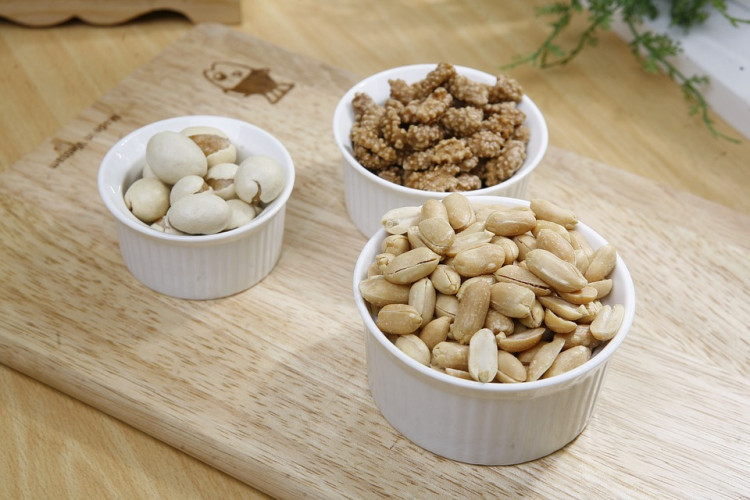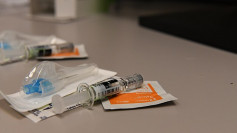Feeding peanut butter to babies, starting during infancy and continuing until age 5, has been shown to reduce the risk of peanut allergies by 71% in adolescence, according to a new study by King's College London. The LEAP-Trio study, published on Tuesday in NEJM Evidence and sponsored and co-funded by the National Institute of Allergy and Infectious Diseases (NIAID), is a follow-up to the Learning Early About Peanut Allergy (LEAP) clinical trial.
In the original LEAP trial, half the participants were asked to consume peanuts regularly from infancy until age 5, while the other half were asked to avoid the food during that period. Researchers found that early introduction of peanuts reduced the risk of peanut allergy at age 5 by 81%. The latest trial included 508 participants from the original study, averaging 13 years of age, who were given peanuts in a controlled setting to gauge any allergic reactions.
Lead study investigator Gideon Lack, a professor at King's College London, told Fox News Digital, "The key finding of this study is that early consumption of peanut, starting early in the first year of life, confers long-term protection against peanut allergy all the way into adolescence, even without continued consumption of peanut beyond the age of five years. This is the first study to establish long-term oral tolerance as a protective strategy against peanut allergy."
To prevent peanut allergy, the researchers recommended that young babies, as early as 4 months of age, should be given peanuts in the form of peanut puffs or peanut butter "regularly and frequently" - at least three times a week - over the first four to five years of life.
Sherry Coleman Collins, a food allergy dietitian in Marietta, Georgia, who was not involved in the study, noted that the findings support the idea that tolerance to foods developed in infancy can extend into adolescence. "Infants who have moderate to severe eczema and/or egg allergy should discuss early introduction of peanut foods to help prevent peanut allergies because they are at highest risk," she advised.
While the study did have some limitations, such as being carried out in a high-risk population of babies with severe eczema or hens egg allergy, Lack acknowledged that the findings of the original LEAP study have now been replicated in other lower-risk normal populations and are therefore applicable to the general population.
Jeanne Marrazzo, NIAID's director, called the study a "game changer" because it demonstrates that children can build protection from peanut allergy if they consume peanut products from four to six months through age 5. She said such early consumption of peanut products could prevent tens of thousands of cases of peanut allergy among young children.
Sung Poblete, CEO of Food Allergy Research & Education, a nonprofit that aims to improve the quality of life and health of those with food allergies, said the new study is "hugely important" because it shows food can be used as preventive medicine. "We say eat early, eat often, and that's exactly what this research demonstrates," said Poblete.
However, Poblete noted that parents have been slow to introduce peanuts to children's diets, perhaps due to conflicting recommendations over the years. In 2000, the American Academy of Pediatrics recommended delaying peanut consumption until the age of three, but in 2008, the organization rescinded its advice. In a 2019 update, the pediatricians group said there is "no evidence" that delaying foods such as peanuts, eggs, and fish beyond four to six months can prevent disease, and "there is now evidence that early introduction of peanuts may prevent peanut allergy."
The LEAP-Trio study's findings could likely be effective for other types of food allergies, according to the researchers, and provide a promising avenue for preventing the development of these allergies in children through early and consistent exposure to potential allergens.






